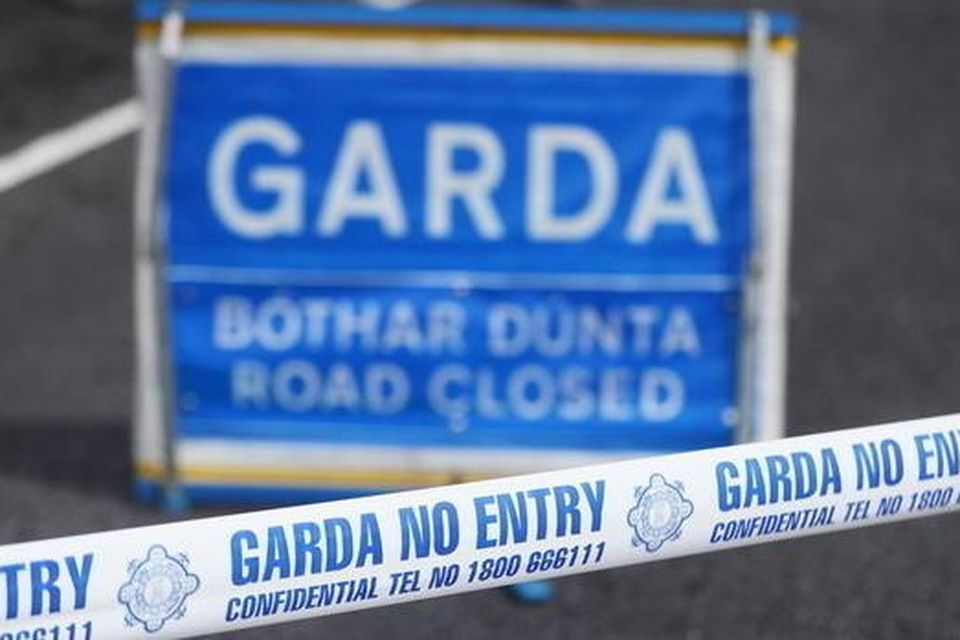‘Enforcement levels have collapsed’: Alarm as almost half of Irish road deaths involve people under 30
Road deaths in Ireland are on course to reach a 10 year high this year. Photo: Stock image
Almost half of Ireland's road deaths this year have involved young people aged 30 years and under.
The shocking statistic came as it emerged that under 30s now represent 41pc of all traffic fatalities, with road deaths across Ireland having soared by an alarming 31pc in 2024.
A total of 63 people have died on Irish roads in the first 103 days of this year, with 26 of those fatalities involving drivers, pedestrians, passengers and motorcyclists aged 30 years and under.
The two most recent fatalities on Irish roads both involved young men.
Jake Mulcahy (19) died after a two-vehicle collision in Cork on Thursday, while Vincent O'Doherty (20) died after a collision outside Listowel, Co Kerry, on Wednesday.
Two men in their early 30s are now fighting for their lives after a separate two-vehicle collision in Kilkenny on Thursday evening.
A third man, aged in his 20s, is in a serious condition at University Hospital Waterford (UHW) after the same collision.
Road safety groups have warned that the large proportion of road fatalities involving young people raises serious questions about driver education, safety campaigns, enforcement of road safety regulations and operational resources for Garda Roads Policing Units.
RSA research warned that the highest risk age among road users in 2023 was those aged 16-25 years.
This group represented 26pc of total fatalities (48 deaths) and the figures represented an overall increase of 23 road user fatalities compared to 2022.
However, the percentage of young people dying on Irish roads has soared by over 15pc this year and now accounts for close to half of all fatalities.
At the current rate of traffic fatalities, Ireland is on course to record over 225 deaths by December 31, potentially making it the worst year for road safety in over a quarter century.
Junior Transport Minister Jack Chambers confirmed that proposals on reform of the Road Safety Authority (RSA) will now be brought before the Government within the next five months.
His remarks on reform came after a coalition of Irish road safety groups warned that the RSA was "no longer fit for purpose" – and pleaded for extra resources for the gardaí.
Mr Chambers insisted the review is aimed at assessing whether the authority, which was established almost two decades ago, needs modernisation and adaptation to changing road safety demands.
However, the Dublin TD bluntly acknowledged that Ireland also urgently needed to address issues over the enforcement of road safety regulations.
"Enforcement levels have collapsed," he admitted.
"We need to see tangible allocations to (Garda) Roads Policing Units."
Garda Commissioner Drew Harris ordered that all uniformed officers must now conduct at least 30 minutes of road safety policing work on each shift.
Aontú leader Peadar Tóibín hit out at the measure as "a sticking plaster" solution to a horrendous problem now facing the State.
The Association of Garda Sergeants and Inspectors (AGSI) warned that frontline resources were now a major issue for the force as it responded to multiple operational challenges.
Garda roads policing director, assistant commissioner Paula Hilman, insisted the force was diverting newly recruited personnel into traffic units nationwide.
Garda chiefs said they hope to have 75 more officers assigned to road policing units by December 31.
Parc road safety campaign group founder, Susan Gray, repeatedly expressed concerns over recent months about the steady decline in Garda Road Policing Unit personnel numbers.
Personnel within dedicated road policing units have fallen by 40pc in a decade.
At peak levels, Garda RPUs boasted 1,046 personnel in 2014.
In 2022, Garda RPUs had 692 members but that fell to 688 last year.
It has now plummeted to 627 officers – its lowest level for over 15 years, with new personnel allocations failing to keep pace with retirements and departures to other service branches.
Mrs Gray has now called for reform of the driving testing regime, greater driver education and stricter enforcement of road safety regulations.
She warned that the provision of additional resources and personnel to road policing units should be a national priority.
The Parc official warned that it was "beyond belief" that some drivers were behind the wheel after receiving multiple learner permits and without ever having sat a driving test.
She said the alarming surge in road deaths should be treated as a priority by everyone in Government and road safety agencies.
"What is worrying is that the (road fatality) numbers have been going in the wrong direction both in 2022 and in 2023," Mrs Gray warned.
RSA chairperson Liz O'Donnell admitted the rise in road deaths was a matter of concern for everyone involved in road safety.
She warned that RSA research has shown “high levels of non-compliance” on the roads, including speeding, use of mobile phones and driving while intoxicated.
"We cannot continue with this level of carnage on the roads. We’re gone back now – it is the highest in 10 years and we were doing really well internationally. We were the leading lights in road safety.”
Current figures indicate that almost 70pc of fatal collisions in Ireland occur between 7pm and 4am.
Men are dying on Irish roads at a rate of five-to-one compared to women.
Road safety campaigner Christina Donnelly, who lost her son Brendan in a collision caused by a drunk driver, said it was "an insult" to those who have needlessly lost loved ones on Irish roads to hear about people getting behind the wheel while under the influence of drink or drugs.
"I have one thing to say to anyone who gets behind the wheel while under the influence of alcohol or drugs, and to those who drive at such speed that they endanger themselves and others – shame on you," she said.
"Those who still continue to drink and drive are an insult to the families and victims who have lost their lives due to drink driving."
Ms Donnelly regularly visits secondary schools to talk to young people about road safety and the heartbreaking loss she suffered.
Join the Irish Independent WhatsApp channel
Stay up to date with all the latest news










